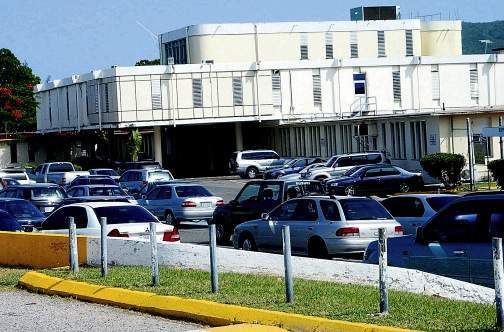THE European Union (EU) is supporting University Hospital of the West Indies (UHWI) and the Ministry of Health and Wellness to develop a national deceased organ transplant programme to address the steadily increasing prevalence of renal failure and end-stage renal disease in the region.
Recently, more than 50 medical experts and practitioners from the Caribbean (including Jamaica, Trinidad and Tobago, and Antigua and Barbuda) and Europe (Spain, France, and Portugal) shared their professional experiences in a webinar on organ donation and transplants for the development of a deceased donor programme in Jamaica.
The webinar was hosted by the EU, through its Technical Assistance and Information Exchange instrument (TAIEX), in collaboration with UHWI and the health ministry.
Jamaica is the first beneficiary under TAIEX in Latin America and the Caribbean. The programme provides rapidly mobilised short-term support for EU member states public sector expertise, in response to requests for assistance from public institutions in partner countries.
Spain was among the main supporters of the initiative, aimed at strengthening the collaboration between UHWI and the Hospital Clinic de Barcelona — the academic institution developing one of the most successful models of organ donation in the world.
Malgorzata Wasilewska, ambassador of EU delegation to Jamaica, was pleased to address the experts gathered online for an exchange of knowledge that could potentially save lives.
“The sharing of best practices and experiences of experts from EU member states — with Spain at the helm — is in fulfilment of our commitment to contribute to the effort to strengthen health systems. I’m sure that this support to UHWI will be another success story of the partnership between Europe and Jamaica.”
Head of the Organ Transplant Unit at the UHWI, Dr Adedamola Soyibo, underscored the increasing risk of cardiovascular disease and higher rate of death caused by chronic kidney disease. He sees deceased organ donation and transplantation as a way to address the problem of kidney failure in the region.
“The cost associated with dialysis treatment is prohibitive, leading to poorer quality of life. Prevalence of chronic kidney disease is largely driven by chronic non-communicable diseases, which are on the rise in Jamaica and the Caribbean. Kidney transplant, a life-saving treatment of end-stage renal disease, should be offered,” said Dr Soyibo.
This collaboration is expected to result in the establishment of a robust deceased organ procurement and donation programme in Jamaica that will provide a suitable option for treating end-organ failure, not only in Jamaica but in the region as well.
“It will facilitate capacity-building and bolster the delivery of health care systems in Jamaica and the Caribbean. I do anticipate a full roll-out of the programme within the next two years. After all, organ transplantation might be the only chance of survival for some,” added Dr Soyibo.
TAIEX is available to public institutions that are looking for solutions in implementation of sectoral reforms or capacity-building of public sector employees, or when immediate support is necessary for the development of public administration.
Short-term technical assistance form the EU member states is mobilised through expert missions, workshops, and study visits, as well as online webinars.
Now you can read the Jamaica Observer ePaper anytime, anywhere. The Jamaica Observer ePaper is available to you at home or at work, and is the same edition as the printed copy available at http://bit.ly/epaperlive


